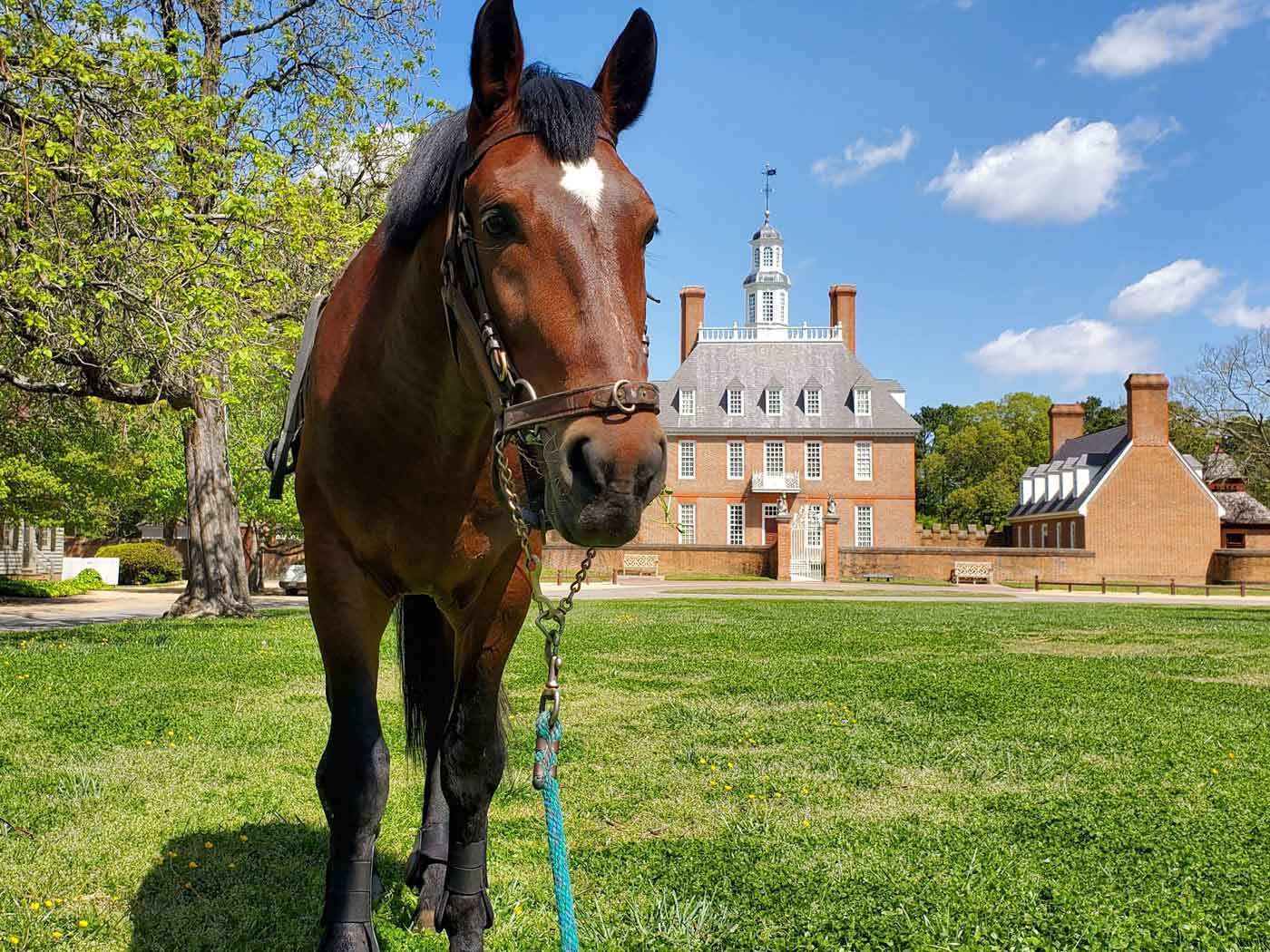Coach & Livestock staff is still busy caring for animals — especially new ones!
Although the Foundation has been closed to visitors, there has been no shortage of work and projects for the Coach and Livestock Department. Staff members have been hard at work caring for our animals and preparing for the busy season ahead — whenever that comes!
Leicester Longwool Sheep
We’ve been very busy taking care of newest arrivals these past few weeks. So far we’ve had 17 lambs born, including two sets of triplets and four sets of twins in addition to several single births. We also have a few more pregnant ewes, so more babies are on the way in the next month.
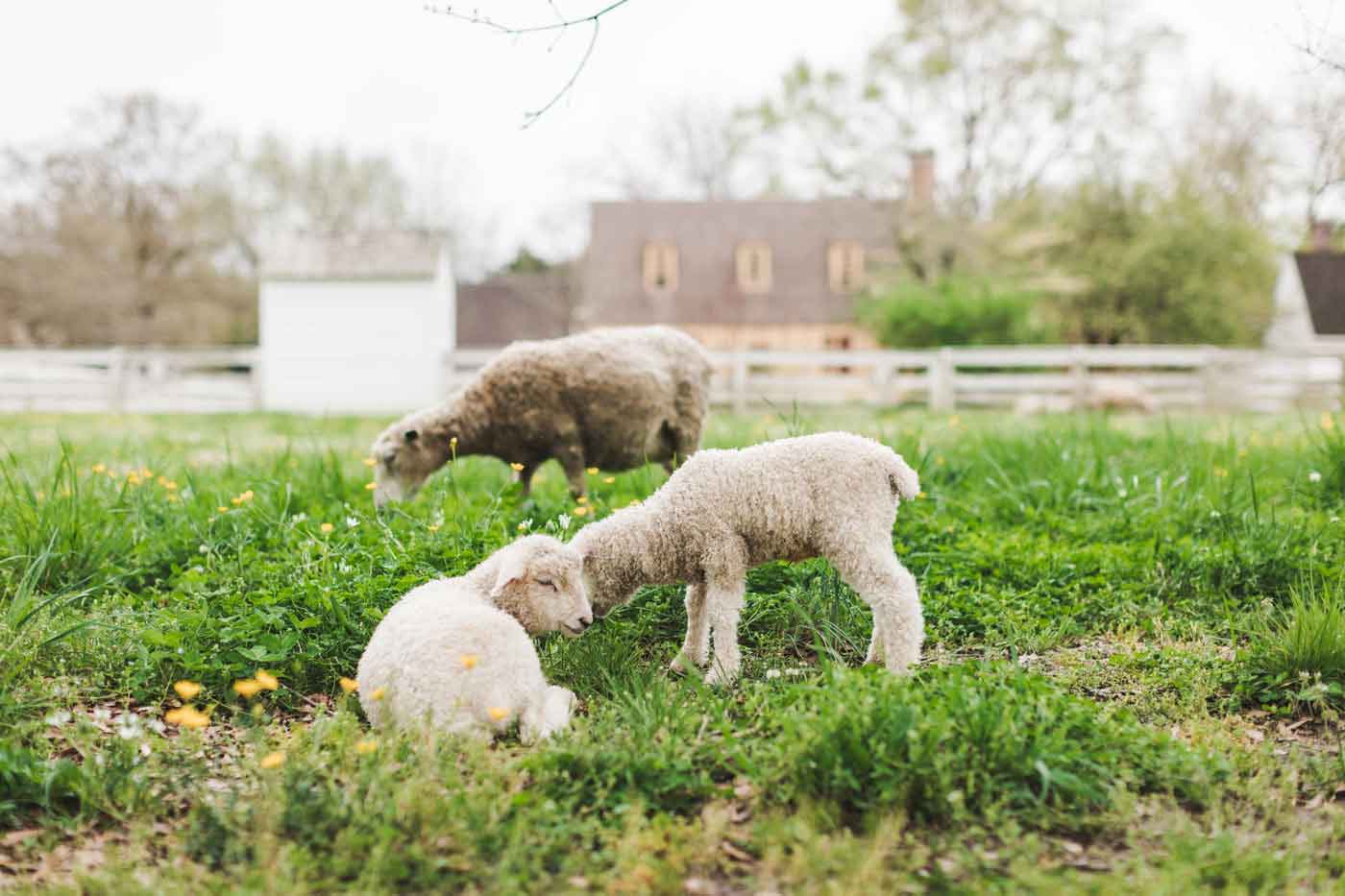
We have also been using this down time to practice our shearing skills as well. Thomas, one of our livestock husbanders, recently attended a sheep shearing school in Maryland and has been hard at work using his training.
Horses
One constant amidst all our recent changes is that our horses require regular training and exercise. So, even though we are technically closed, we still need to exercise our horses as well as continue carriage training with our new coachman. While our horses did enjoy a nice two-week break, just like any athlete who takes a training break, the longer the rest, the harder it is to return to form when the break is over. So our coachmen have also been out in the Historic Area using the training vehicle sharpening their skills for when carriage rides resume.
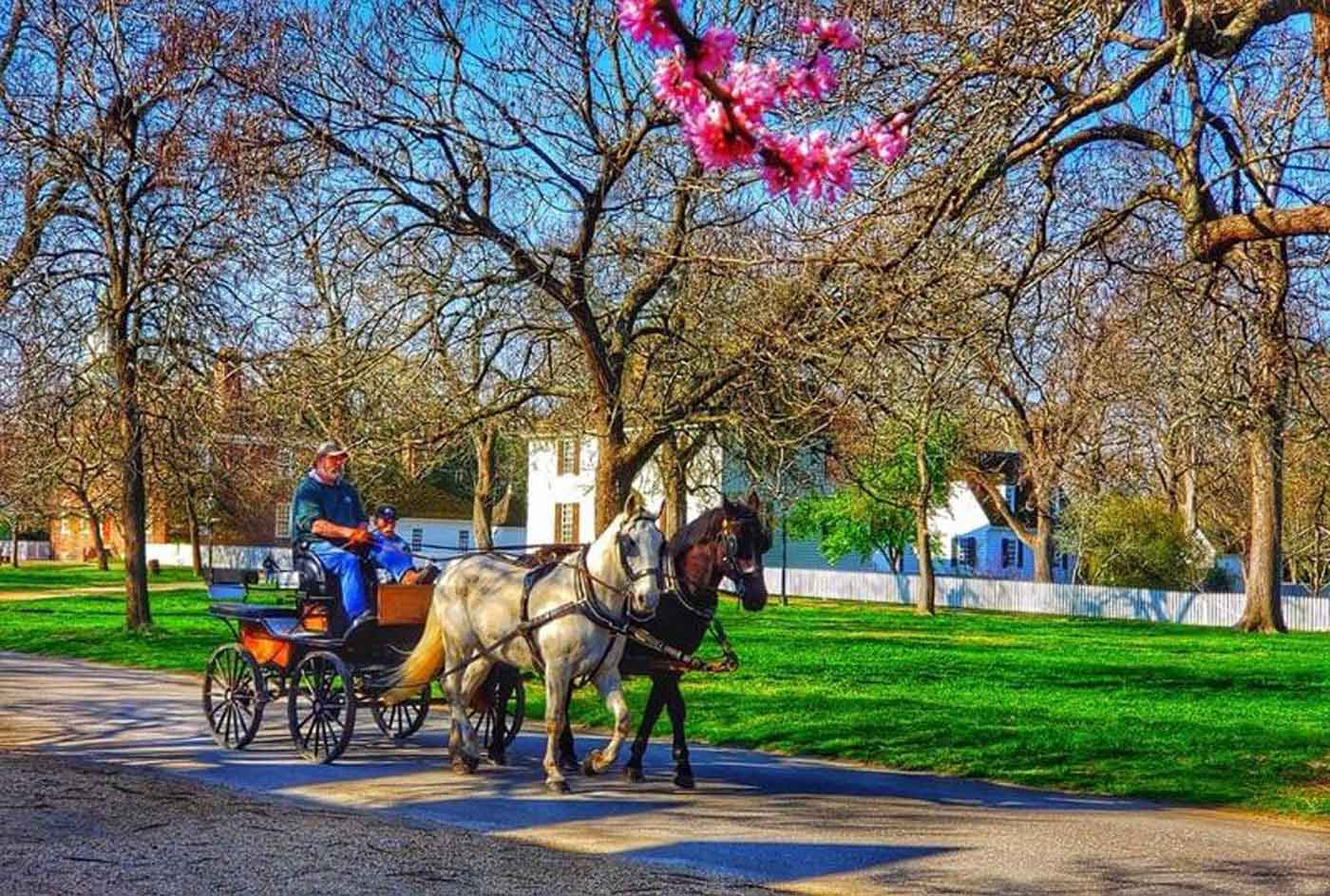
If you’re local, you might have spotted some of us riding horses through the Historic Area or walking our Cleveland Bay stallion, Clarence, or one of our carriage horses, Commodore. These walks are great for horses that don’t get to experience the Historic Area often. Clarence is reacquainting himself with the sights and sounds of the town, while Commodore is recovering from a tendon injury and can’t be turned out in a group with other horses.
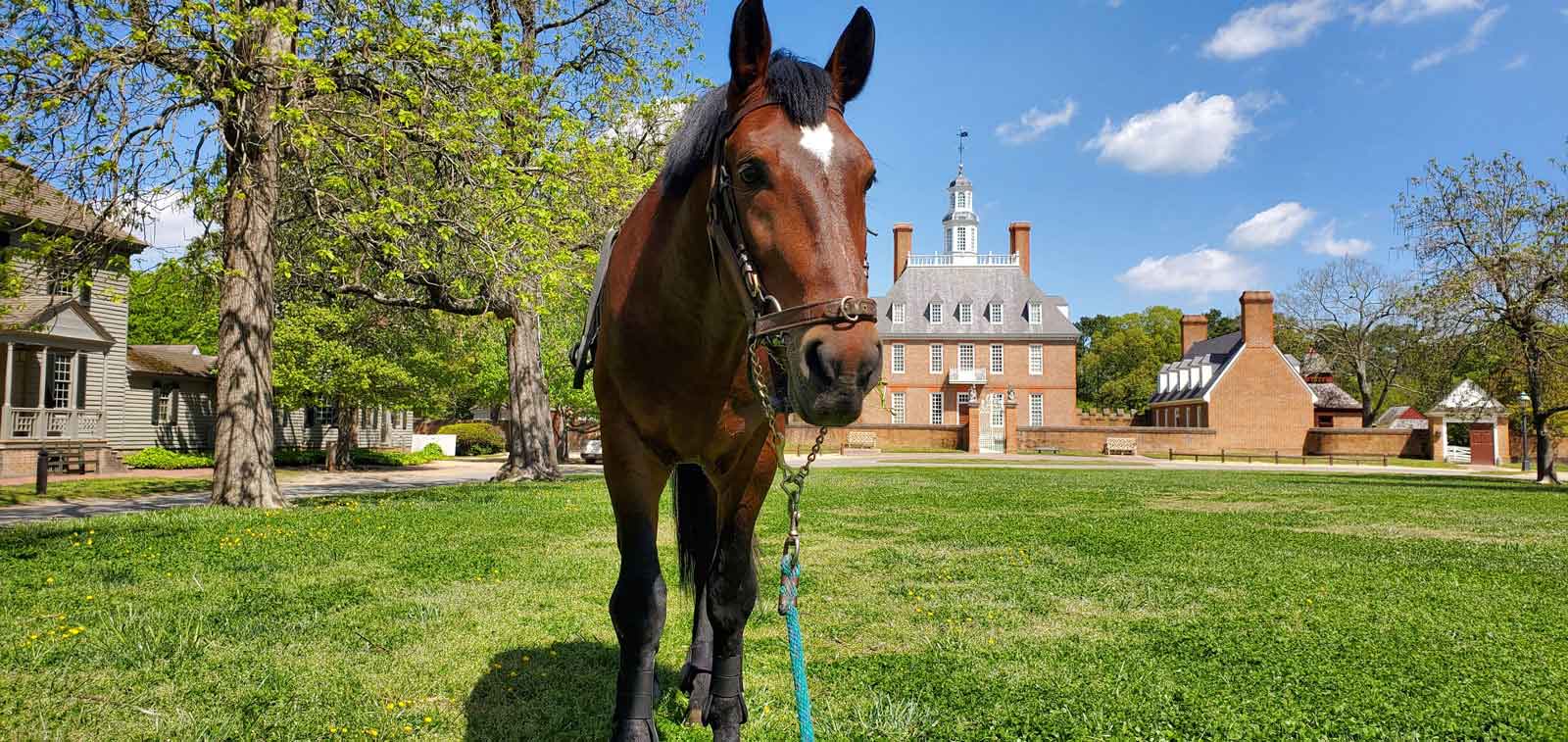
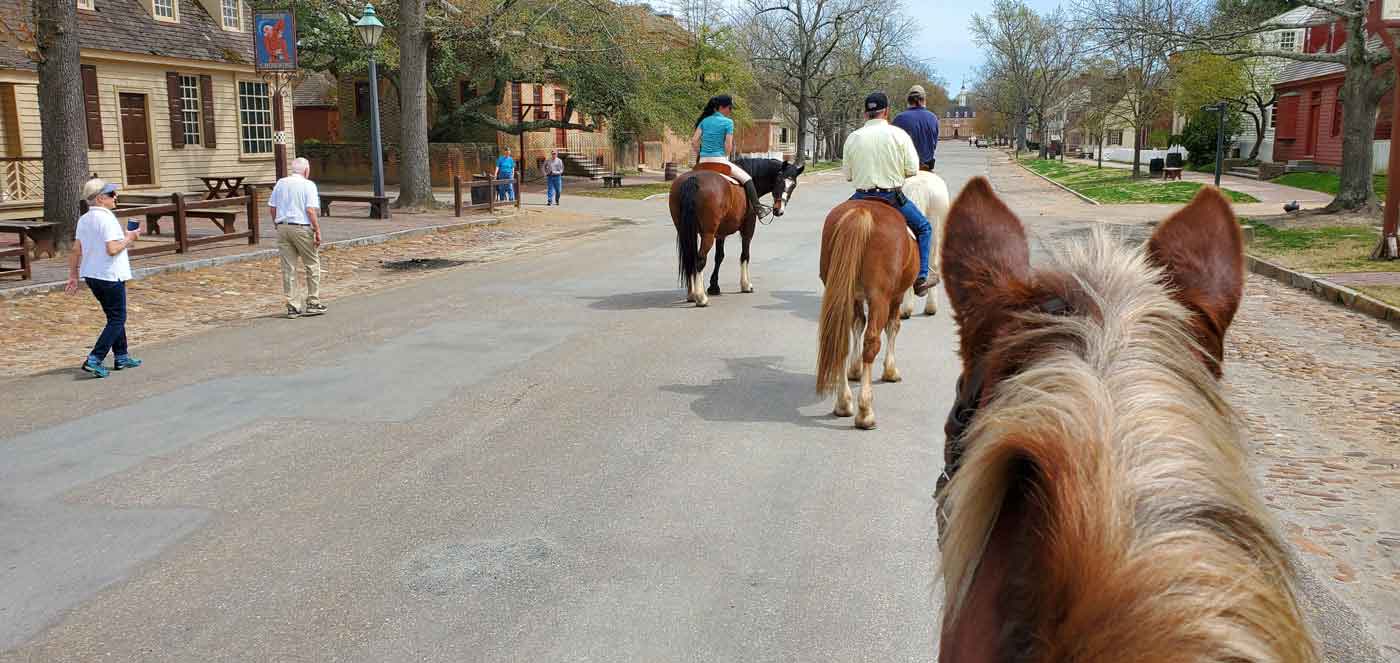
In the last few weeks, we have also significantly increased our Cleveland Bay herd. We are the proud new owners of Elpis (a.k.a Hope) and Bayhill Gemma, who are part bred Cleveland Bay mares. Hope was a former hunter jumper horse and Gemma was trained for the fox hunting field. These lovely girls will be used mainly as moms but will also potentially serve as riding horses for us as well.

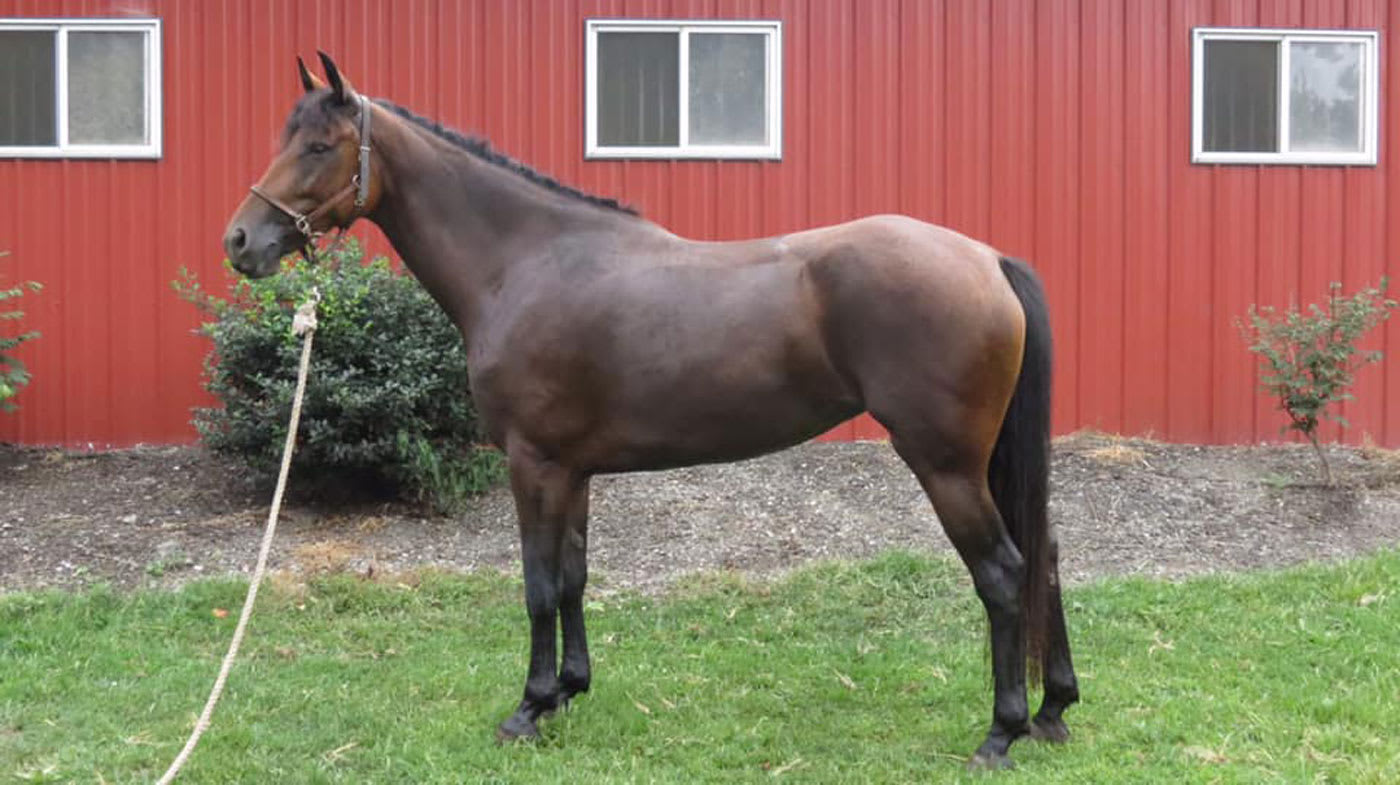
We have also acquired a new stallion Tregoyd Journeyman (a.k.a Joe) and Penrose Bayberry (a.k.a Boo). Joe is a well-known horse in the Cleveland Bay world; he is a multi-time British Champion and was imported to the United States from Wales in 2004 as one of the first premium stallions to come to the United States. He even has his own action figure. Yes, you read that right, he was made into a toy Breyer horse in 2006. He and Clarence will hopefully be the dads to a few of our foals in the coming breeding season.
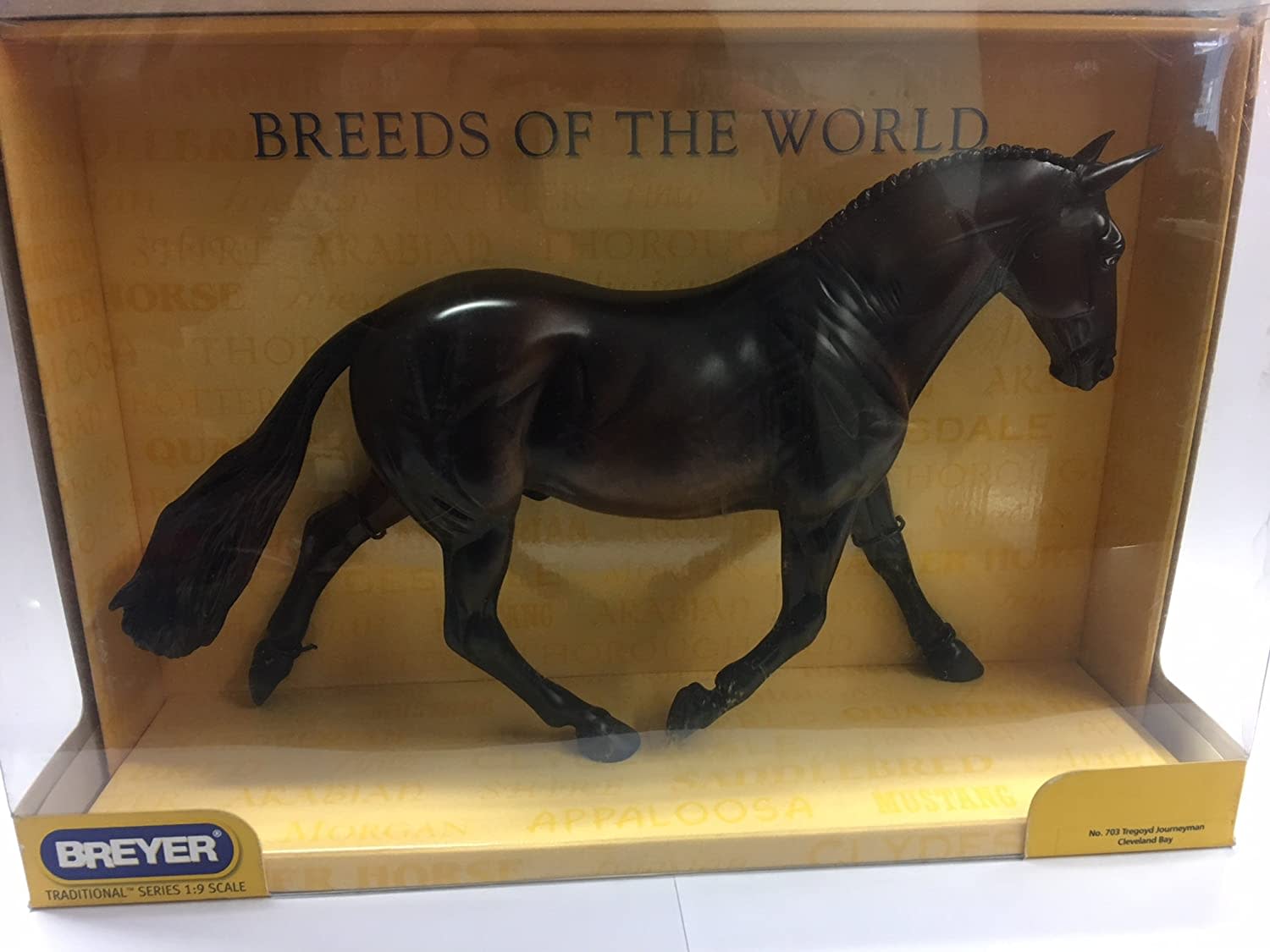
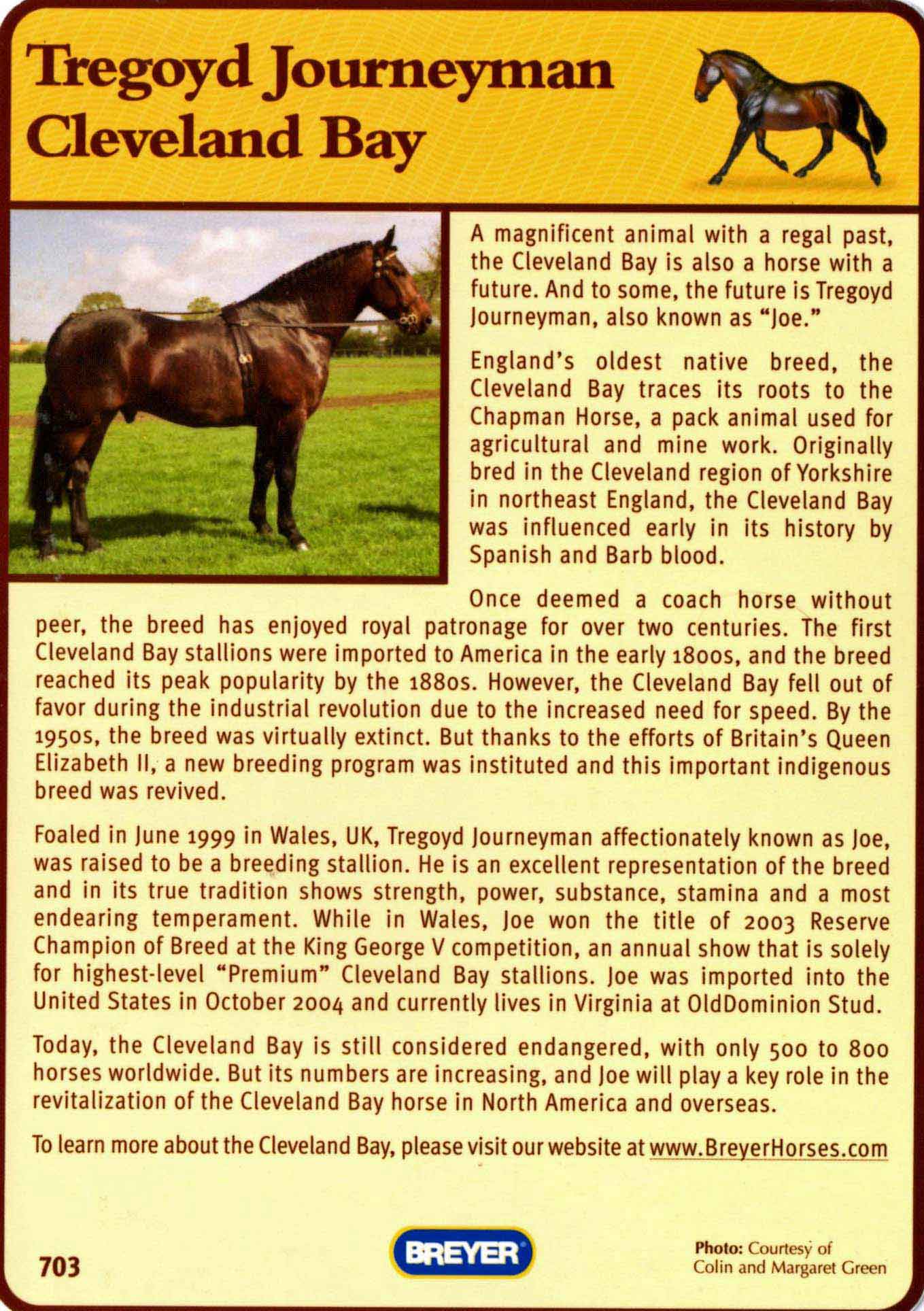

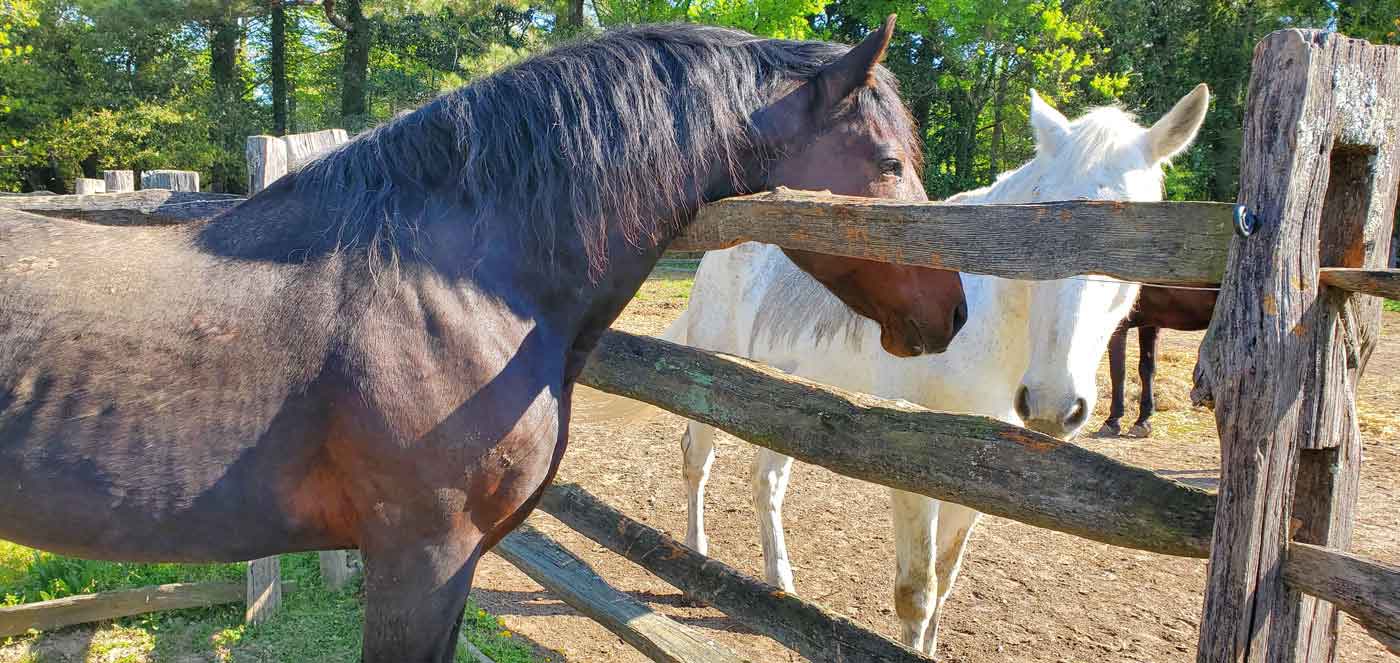
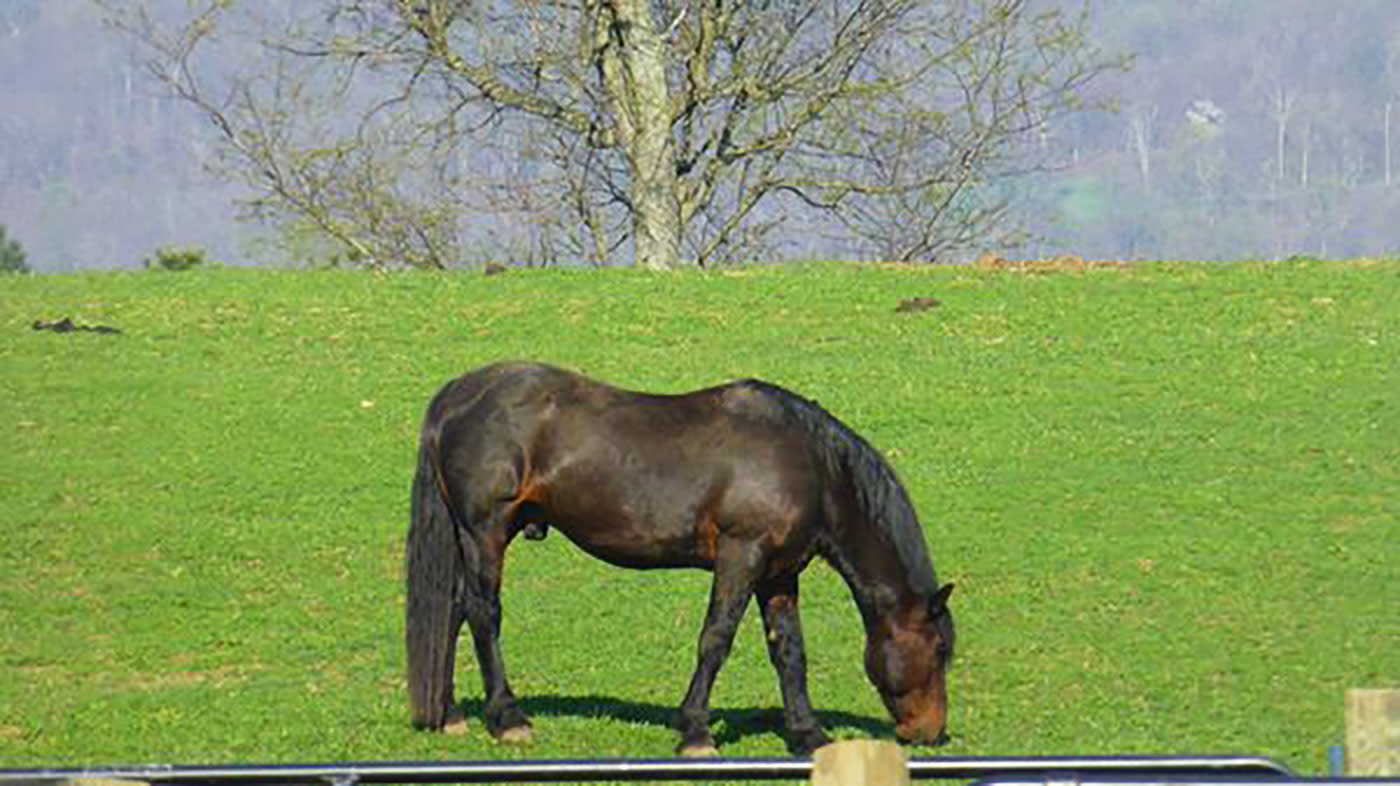
Boo comes to us having already had a few foals herself. She and Joe had what the Cleveland Bay society calls a “premium mare” together. Essentially, it means that their foal was one of the best looking and highest rated quality mares. Boo will be part of our mare herd and will also hopefully be welcoming a new foal this next season.
Caring for our horses also includes regularly scheduled shoe trimming and maintenance from our farrier. Watch the video below for an insider look at this process.
Pastures
As we all know Spring means grass cutting, and at Colonial Williamsburg, it also means grass planting as well. We currently have around 65 acres of pastures that support our livestock and maintaining them is one of the tasks we are charged with. While this may seem easy since our animals love eating, each spring we must replant several pastures to continue to ensure we have good grass for our animals. You might see some of our folks running around the Historic Area in various tractors with drags or seed spreaders on the back getting our pastures ready.
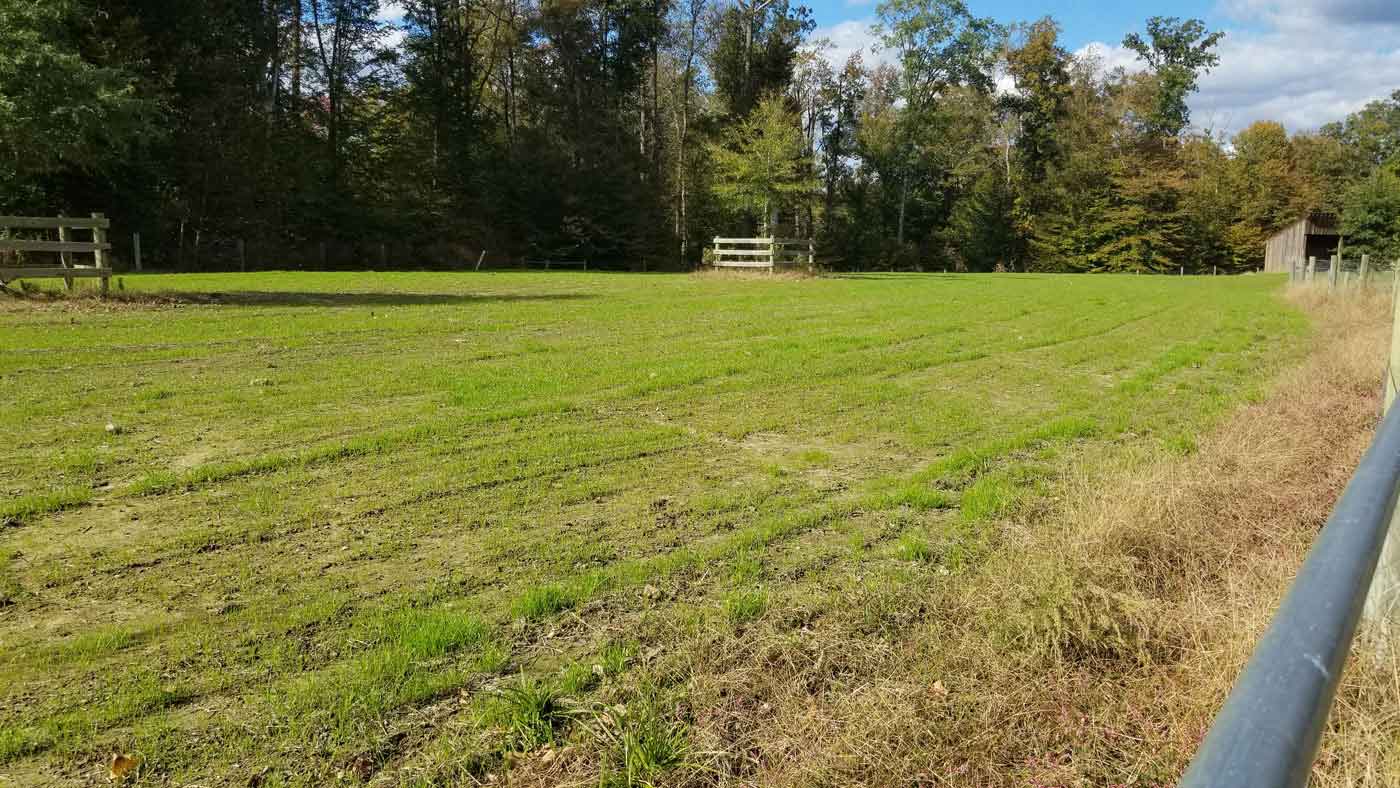
As you can see we have been very busy this Spring and are looking forward to sharing our hard work with our guests — it’s just not the same without you! For now, we will be here taking care of our lovely animals. And we can’t wait to see you soon, when it is safe to reopen.
